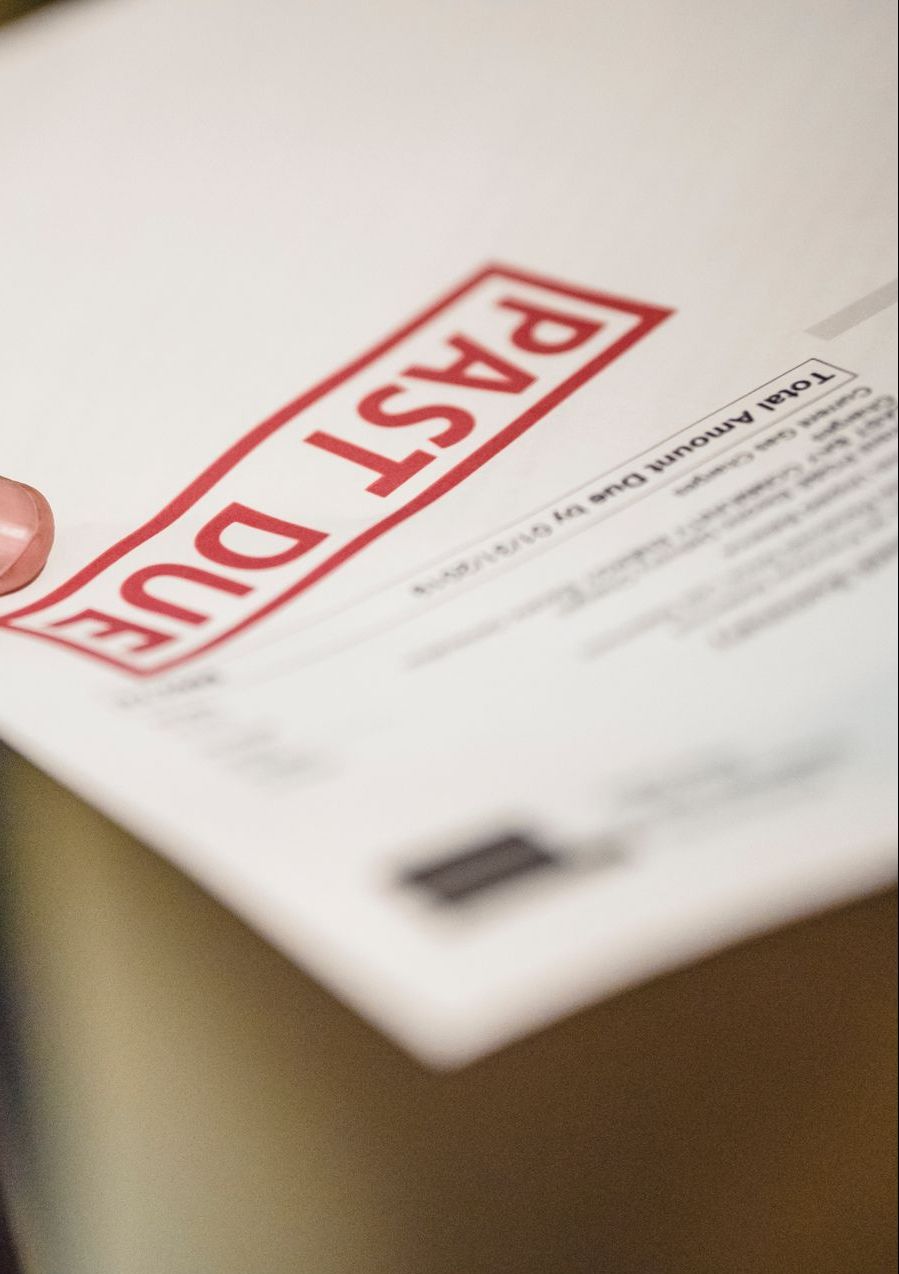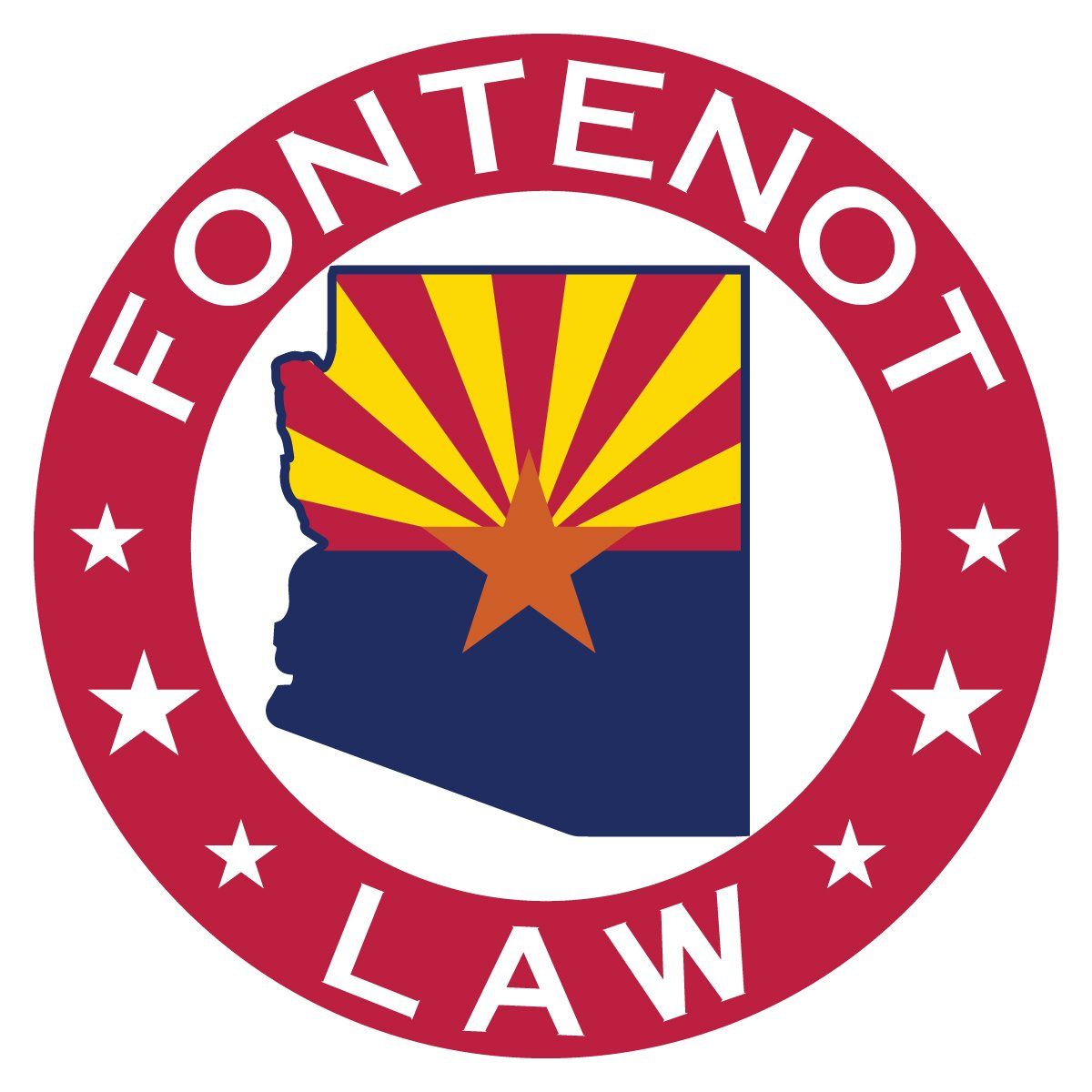Member: State Bar of Arizona;
Mohave County Bar Association
Law Offices of Lenkowsky & Fontenot is
Now Known as Fontenot Law

The Fontenot Law PLLC Areas of Practice
CIVIL PRACTICE
At the office of Fontenot Law PLLC, our mission is to provide creative solutions to complex civil and commercial problems for small and large businesses alike. We also offer estate planning services that can ensure your property is secured and your loved ones are provided for after your passing. We have brought together a diverse team of professional attorneys with broad-ranging experience in corporate law and family law to provide our clients with the very best legal counsel.
WILLS
We also encourage our clients of all ages to think about having a living will, giving you the confidence that your wishes will be carried out as you desire. A living will also express your wishes in no uncertain terms when you're unable to speak for yourself during an illness. Your personalized will can also dictate:
- Who receives your property after your passing
- Resuscitation directives for your doctors and family
- Relevant language for hospitals and your doctor
- Funeral Arrangements
- Named executor of your will
- Any other items you feel need attending to after your passing
- Last Will and Testament
- Living Will
- Healthcare Power of Attorney
- Beneficiary Deeds
If you're looking for advice on your estate planning and the writing of your will, please do not hesitate to contact our experienced and courteous attorneys. We're here to help.
PERSONAL INJURY
If you have experienced personal injury don't wait, we want to help ensure you have not passed Arizona's Statute of Limitations. Call the Law Offices of Lenkowsky and Fontenot to discuss your case and receive the assistance you need.
CRIMINAL COURT PROCESS
If you've been arrested and charged with a crime in Arizona, you probably have questions about your case's journey through the criminal justice system. This is especially true if you've never been accused of committing a crime, before.
PERSONAL INJURY
If you have experienced personal injury don't wait, we want to help ensure you have not passed Arizona's Statute of Limitations. Call Fontenot Law PLLC to discuss your case and receive the assistance you need.
TYPES OF PERSONAL INJURY WE CAN HELP WITH:
Contact our attorneys if you've been hurt in an accident in Phoenix, Arizona. Put our knowledge and experience to work for you to help put your life back together. At Fontenot Law, we know how stressful it can be to deal with serious personal injuries, ongoing pain, and emotional suffering, as well as expensive medical bills and lost wages after an accident in Arizona. When you speak with our Phoenix personal injury lawyers, we will help you through your claim process so that you receive maximum compensation without diminishing your legal rights. Get answers to your questions by emailing or calling 928-758-4815 today for a consultation! You are represented every step of the way by our attorney, who will personally handle your claim from start to finish.
PULLED OVER FOR A DUI!? DON'T PANIC, HERE IS WHAT TO DO:
- STAY IN YOUR VEHICLE
- WAIT FOR THE OFFICER TO APPROACH YOUR WINDOW
- SHOW YOUR DRIVER'S LICENSE, REGISTRATION & PROOF OF INSURANCE
- BE COURTEOUS AND RESPECTFUL
- DO NOT AGREE TO ANY BLOOD, BREATH, OR URINE TESTS AND ASK TO TALK TO AN ATTORNEY. KNOW THAT THEY ARE MANDATORY AND REFUSAL COULD LEAD TO A SUSPENDED DRIVER'S LICENSE FOR UP TO A YEAR
- DO NOT ANSWER QUESTIONS OTHER THAN YOUR NAME OR DATE OF BIRTH. DO NOT ADMIT ANYTHING. YOU HAVE THE RIGHT TO REMAIN SILENT. YOU CAN REPLY WITH "I RESPECTFULLY DECLINE TO ANSWER ANY QUESTIONS AND I AM INVOKING MY RIGHT TO REMAIN SILENT."
- DO NOT TAKE ANY FIELD SOBRIETY (COODDINATION) TESTS . THESE ARE NOT MANDATORY
- DO NOT TAKE AN EYE TEST AS THEY ARE NOT MANDATORY
- ASK TO CALL AND TALK WITH AN ATTORNEY IMMEDIATELY - WE CAN BE REACHED AT 928-758-4815
CRIMINAL COURT PROCESS
If you've been arrested and charged with a crime in Arizona, you probably have questions about your case's journey through the criminal justice system. This is especially true if you've never been accused of committing a crime, before.
Here's a brief overview of the path through the criminal justice system that a case usually takes, once you've been arrested and formally charged.
-
• PLEA DEALS
The American criminal justice system relies heavily on guilty pleas and plea bargaining. While there are no hard numbers, the federal court system estimates that more than 90% of defendants plead guilty, rather than go to trial. For some cases, that number is even higher – an estimated 97% of those who are charged with a federal drug crime plead guilty.
Plea deals can happen anytime between the formal charge and the end of your trial and are greatly influenced by the evidence that gets gathered by your criminal defense attorney and the prosecution.
-
• TRIAL
If you refuse to plead guilty to the crimes you're being accused of, your case will go to trial. These are the events that you often see on TV shows like Law and Order, with the prosecution presenting its case against you, and then your defense lawyer countering their evidence.
Trials can be heard by a jury, or by the judge alone. If only the judge hears the case, it's called a bench trial. There are pros and cons behind each one, as judges are less likely to have sympathy for you, while juries are more likely to have their emotions played with by the prosecutor.
If you're found not guilty during trial, you're free to go and your case is over. However, if you're found guilty, your case progresses to the sentencing process.
-
• SENTENCING
If you're found guilty of the charges against you, the next issue is what the sentence will be. Contrary to popular belief, the sentence for a crime is not exactly set in stone: Your attorney can still be a huge asset in reducing the amount of jail time or other consequences you could face.
-
• APPEALS
If you're found guilty, you can appeal your conviction to a higher court if there are grounds for appeal. If your trial was held in one of Arizona's justice courts, then your appeal would go to one of the two Arizona Courts of Appeals. If the crime you were charged with was a federal one and your trial was held in a U.S. District Court, your appeal would go to the U.S. Court of Appeals for the Ninth Circuit, in San Francisco.
-
• PLEA DEALS
The American criminal justice system relies heavily on guilty pleas and plea bargaining. While there are no hard numbers, the federal court system estimates that more than 90% of defendants plead guilty, rather than go to trial. For some cases, that number is even higher – an estimated 97% of those who are charged with a federal drug crime plead guilty.
Plea deals can happen anytime between the formal charge and the end of your trial and are greatly influenced by the evidence that gets gathered by your criminal defense attorney and the prosecution.
-
• TRIAL
If you refuse to plead guilty to the crimes you're being accused of, your case will go to trial. These are the events that you often see on TV shows like Law and Order, with the prosecution presenting its case against you, and then your defense lawyer countering their evidence.
Trials can be heard by a jury, or by the judge alone. If only the judge hears the case, it's called a bench trial. There are pros and cons behind each one, as judges are less likely to have sympathy for you, while juries are more likely to have their emotions played with by the prosecutor.
If you're found not guilty during trial, you're free to go and your case is over. However, if you're found guilty, your case progresses to the sentencing process.
-
• SENTENCING
If you're found guilty of the charges against you, the next issue is what the sentence will be. Contrary to popular belief, the sentence for a crime is not exactly set in stone: Your attorney can still be a huge asset in reducing the amount of jail time or other consequences you could face.
-
• APPEALS
If you're found guilty, you can appeal your conviction to a higher court if there are grounds for appeal. If your trial was held in one of Arizona's justice courts, then your appeal would go to one of the two Arizona Courts of Appeals. If the crime you were charged with was a federal one and your trial was held in a U.S. District Court, your appeal would go to the U.S. Court of Appeals for the Ninth Circuit, in San Francisco.
EVICTIONS
In Arizona, eviction typicall will start when a tenant has failed to pay rent. If a tenant fails to pay the rent and is still occupying the rental property, the landlord can then start the eviction process through the court system. The first step to the eviction process, is to provide the tentant with a 5-day notice.
A landlord then has two options when serving a 5-day notice. First, the 5-day notice may be hand-delivered to the tenant if they sign and accept a copy. Secondly, the 5-day notice may be sent to the tenant via certified mail as well. The 5-day notice is accepted via certified mail either the date the tenant signs for the notice or five days after the notice is sent. After serving the 5-day notice on the tenant, the landlord then must accept full payment of rent and late fees tendered by the tenant before the five days has elapsed. The landlord does not need to accept partial payments, and it is strongly recommended that landlords do not accept any partial payments. If the tenant fails to pay the amount due within the 5-day time period, the landlord’s next step is to then file a forcible detainer action.
Most forcible detainer actions are filed in a Justice Court. The forcible detainer action is considered a “summary proceeding.” The hearing is held within 3 to 5 days of the action filing, assuming the tenant has been properly served in that time frame. The hearing is often scheduled 5 to 10 days out to allow for proper service of the complaint and summons on the tenant.
At the hearing, the landlord presents his information regarding the unpaid rent, and the tenant can present any legal defenses for failing to pay rent. In Arizona, there are very few defenses to unpaid rent. The Arizona Landlord Tenant Act clearly defines these limited defenses. If the tenant does not have any valid legal defenses, the landlord will be awarded a judgment for the money owed and an order for a writ of restitution.
The judgment can help a landlord recover financial damages from the ousted tenant. A Writ of Restitution allows a sheriff or constable to physically remove the tenant from the leased premises. The earliest a Writ of Restitution may be issued in a nonpayment of rent case is in five days after the court hearing. Once the Constable or Sheriff is called to the property, the landlord may change the locks and retake possession of the property.
Let us help with:
- EVICTIONS
- UNPAID RENT
- PROPERTY DAMAGES
- BREACH OF CONTRACT OR A LEASE
- LOSS OF PERSONAL PROPERTY
- REPAIRS OR MAINTENANCE ISSUES
- AND MORE

If you have any questions regarding our areas of practice, please call us at 928-758-4815.
Browse Our Website
Contact Information
1181 Hancock Rd Bullhead City, Arizona 86442-5964 United States
Member: State Bar of Arizona;
Bar Mohave County Bar Association






